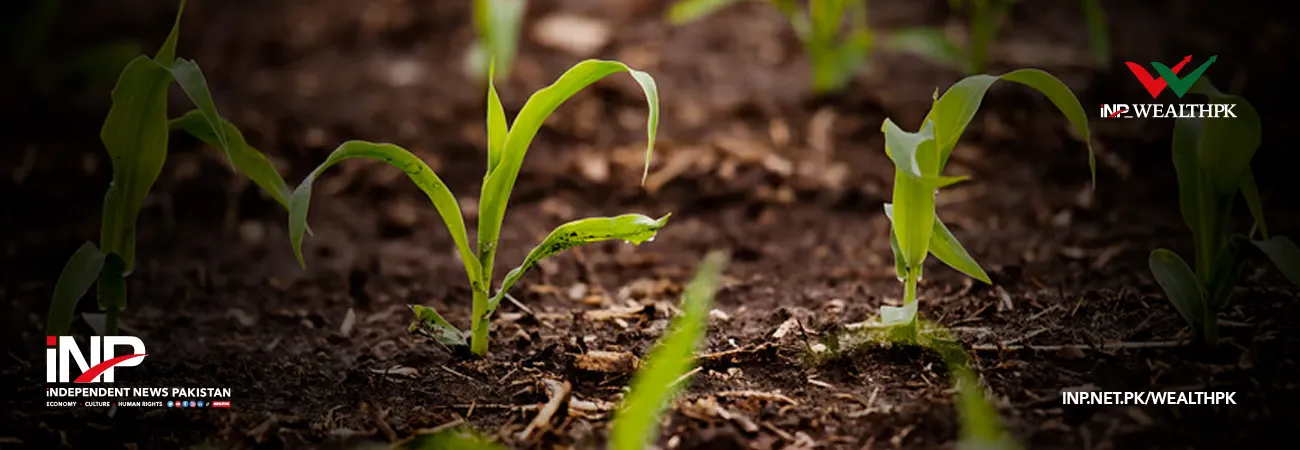INP-WealthPk
Arooj Zulfiqar
Amidst a wave of optimism, experts are applauding the positive trend in agriculture, attributing the sector's robust 6.25% growth in

FY24 to the remarkable performance of major crops, reports WealthPK.
Experts have attributed this positive trend to several factors, including favourable weather conditions, improved farming practices, and increased investment in agricultural technology. The adoption of precision farming techniques and high-yield crop varieties has played a crucial role in enhancing productivity and efficiency across the sector. According to the Pakistan Economic Survey 2023-24, the agriculture sector grew by 6.25% in FY24 due to healthy growth of 16.82% in important crops, i.e. cotton, rice, and wheat. Pakistan’s wheat production recorded 31.44 million tonnes compared to 28.16 million tonnes last year, posting a growth of 11.6%. The country’s cotton production grew by 108.2% to 10.22 million bales in FY24 compared to 4.91 million bales last year, when it was severely damaged by massive rains and floods. Similarly, the rice production reached 9.87 million tonnes in FY24 compared to 7.32 million tonnes last year, registering a growth of 34.8%.
"The implementation of modern farming technologies, such as drone surveillance for crop monitoring and automated irrigation systems, has significantly boosted crop yields,” said M Ahmed, a senior scientific officer at National Agricultural Research Centre (NARC). He said farmers were now able to make informed decisions based on real-time data, leading to better resource management and increased output. He said government initiatives also contributed to the sector's growth. “Subsidies on fertilizers, seeds, and equipment, along with financial support programmes for small and medium-sized farmers, have encouraged greater participation in the agricultural economy.” “Moreover, the government's focus on building infrastructure, such as storage facilities and transportation networks, has further facilitated the efficient distribution of produce and reduced post-harvest losses.” Ahmed said, "While the current growth is commendable, we must remain vigilant and proactive in tackling emerging threats. Continued collaboration between the government, private sector, and research institutions is essential to maintain the momentum and ensure the agriculture sector's resilience in the face of future challenges."
Dr Haroon Sarwar, an economic consultant at the Ministry of National Food Security and Research, said increasing demand for high-quality Pakistani agricultural products in international markets had opened up new revenue streams for farmers and agribusinesses. “Trade agreements with key partners have provided a stable and lucrative market for crops like cotton and rice, bolstering the sector's economic impact.” “Additionally, the emphasis on sustainable farming practices has garnered attention. The adoption of organic farming methods and the promotion of eco-friendly pest control measures have not only improved crop health but also appealed to environmentally conscious consumers both locally and globally. This shift towards sustainability is expected to ensure long-term viability and market competitiveness for Pakistani agriculture.” “However, despite these advancements, challenges remain. Water scarcity, climate change, and the need for continuous innovation are pressing issues that require ongoing attention,” said Haroon. He stressed that more research and development investment was required to address these challenges and sustain the positive growth trajectory.
Credit: INP-WealthPk













